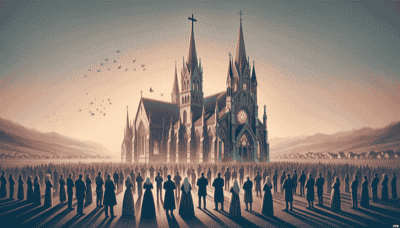We're here to help you keep count of the days to or since a date. Just click the button below and enter your chosen date to get started. Also choose the suggested days or search for a special day above #countingthedays

Background: Good Friday, known in German as "Karfreitag," is a significant day in the Christian calendar that commemorates the crucifixion of Jesus Christ and his death at Calvary. It is observed during Holy Week on the Friday preceding Easter Sunday.
History and Traditions: In Austria, Good Friday was traditionally a day of solemn observance among Christians, particularly the Catholic majority, as Austria has deep-rooted Catholic traditions. The day is marked by church services that often include the reading of the Passion – the biblical account of Jesus' crucifixion – and veneration of the cross.
Historically, Good Friday was not a public holiday across all of Austria; it was only recognized for members of certain Protestant churches (such as Lutherans and Anglicans). However, there have been legal changes regarding this status due to court rulings on discrimination grounds. As such, policies may vary and are subject to ongoing legal discussions.
What People Do: On Good Friday in Austria:
Religious Observances: Many Austrians attend special church services. These services are characterized by their somber nature, with no bells rung and altars left bare until the celebration of Easter.
Fasting: It is common for Christians to fast or abstain from meat as a form of penance on Good Friday.
Processions: In some regions, religious processions take place, where participants reflect on the suffering and death of Christ.
Cultural Practices: Some people use this day to decorate Easter eggs, which is a popular tradition associated with Easter in Austria.
Reflection: Individuals may also engage in personal reflection or read biblical passages related to the Passion of Christ.
While Good Friday's public holiday status might affect opening hours for businesses and public institutions depending on current laws or local agreements, it remains an important day for religious reflection for many Austrians.